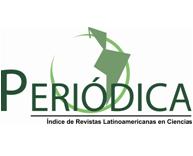Environmental assessment of Solid Oxide Fuel Cell technology integrated with a sugar-ethanol factories applying LCA
Keywords:
Life cycle Assessment, Exergy Efficiency, SOFC, Renewability parameterAbstract
The integrated Solid Oxide Fuel Cell (SOFC) technology with sugar-ethanol factories is evaluated by a Life Cycle Assessment approach (LCA) to assess the environmental impact and by an Exergetic Life Cycle Assessment (ELCA) to account for the exergy efficiency of the system. The sugarcane is the primary feedstock and sugar, ethanol and electricity are the main products in the systems, which define the functional unit, being 9860 Kg/h of sugar, 2195 Kg/h of hydrated ethanol and 850 kWh of electricity. The environmental impact (greenhouse gases and air pollution) and renewability parameter have been taken into account as an indicator for the comparative assessment of the sugar, ethanol and electricity technologies. The results of the LCA show that, the use of a SOFC technology involves a reduction of the greenhouse gas emissions and non-renewable source with respect to the conventional integrated sugar and ethanol plant. A detailed list of material and energy inputs is done using data from local factory and completed using simulation data by Aspen-Hysys.




















